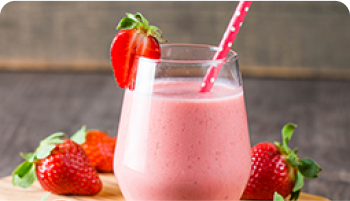PAEDIASURE COMPACT CASE STUDY: EATING DISORDERS AND AUTISM SPECTRUM DISORDER
Lucy’s healthcare professional: Nishti Udeh, Registered Dietitian and Founder of online nutrition consultancy clinic Nishti’s Choice. Formerly Lead Dietitian at an eating disorder unit.
![]()
MEDICAL AND NUTRITIONAL HISTORY
Lucy faced challenges with feeding from the early stages of her life, including difficulties with the introduction of solid foods. Her food preferences were subsequently weighted towards ‘beige’ carbohydrate-rich food.
Despite dietary challenges, Lucy seemed to thrive during the 2020 Covid-19 ‘lockdown’, however, upon returning to school, changes in her behaviour, such as food refusal, sensory sensitivity, school aversion, fearfulness, and difficulties with eye contact, were observed.
These observations, along with concerns about her weight led to the diagnosis of the increasingly more frequently encountered combination of Autism Spectrum Disorder (ASD) and Avoidant Restrictive Food Intake Disorder (ARFID). Lucy was admitted to a general paediatric inpatient ward for 4 weeks, then once medically stable was transferred to an Eating Disorder Unit (EDU) for treatment with the nutritional objectives of:
- Restoring her weight
- Mitigating the risk of refeeding syndrome
- Establishing more balanced eating patterns overall

NUTRITIONAL TREATMENT
During her admission on the general paediatric ward, she received a continuous enteral feeding regime. Despite efforts to meet her nutritional requirements with enteral feeding, there was no improvement in her weight, and Lucy was also treated for suspected refeeding syndrome. Lucy was initiated on PaediaSure Compact*, twice daily, via a nasogastric tube in accordance with MEED (Medical Emergencies in Eating Disorders) guideline recommendations. Lucy’s weight gain trajectory continued in line with MEED guidelines, increasing by 0.5-1 kg per week, steadily towards her target weight of 46 kg.
After 2 months, an open and negotiable approach was taken in introducing PaediaSure Compact into Lucy’s oral intake strategy. It’s crucial for children with ARFID and ASD to feel heard and employing negotiation tactics helped encourage Lucy to make these changes which resulted in her BMI steadily reaching the 13th centile.
Three months after admission, with coaching from her dietitian, Nishti, and the multidisciplinary (MDT) team, Lucy gradually began to consume PaediaSure Compact three times daily. At this time, she exhibited great progress as her weight had improved and stabilised.
To encourage Lucy to consider oral intake of solid food, negotiation took place to substitute her enteral feed for her favourite snack, however, shortly after stopping her enteral feeds, she began to lose weight again. Lucy chose to revert to PaediaSure Compact as her preferred way to increase her caloric intake.
OUTCOMES
Six months after being admitted to the EDU, Lucy was discharged at her target weight of 46kg and a BMI centile of 17.65. This was an increase on her original weight of 44-45 kg before her diagnosis. She was eating more food and maintained consumption of PaediaSure Compact twice daily. She was able to eat breakfast and a sandwich for lunch, as well as snacks, though she struggled with hot meals.
KEY FINDINGS
- Acknowledging Lucy’s needs and sensory sensitivities helped to reduce her anxiety and stress which contributed to her acceptance of change when increasing her nutritional intake.
- The gradual and considered introduction of solid foods into Lucy’s diet was crucial in restoring her weight and normalising her eating behaviours.
- Utilising transparency, open discussion and negotiation as part of Lucy’s dietetic strategy helped to make her feel heard and involved in her own decision-making, leading to a positive outcome which is more likely to be maintained. This is of particular importance for children with ASD.
RELATED CONTENT
PaediaSure Peptide Case Study Cerebral Palsy
- Main Image
-

- Tagname
- CASE STUDY
- title
- PaediaSure Peptide Case Study – Cerebral Palsy
- Abstract
-
Learn more about Lucas and his health challenges.
- Content Reference
- /content/an/hcpproconnect/uk/en/home/paediatric/resources/public/ps-peptide-cs-cerebral-palsy
PaediaSure Peptide Case Study Short Bowel Disease
- Main Image
-

- Tagname
- CASE STUDY
- title
- PaediaSure Peptide Case Study – Short Bowel Disease
- Abstract
-
Learn more about Rebecca and her health challenges.
- Content Reference
- /content/an/hcpproconnect/uk/en/home/paediatric/resources/public/ps-peptide-cs-short-bowel-disease
Recipe for Eager Elephant's Strawberry Smoothie
Eager elephants strawberry smoothie
- Main Image
-

- Tagname
- RECIPE
- title
- Eager Elephant's Strawberry Smoothie
- Abstract
-
Serves 1
- Content Reference
- /content/an/hcpproconnect/uk/en/home/paediatric/resources/public/hcp-eager-eleph-strawberry-smoothie-v2
Footnotes:
*PaediaSure Compact is for ages 1-10 years or children weighing 8-30kg. The use of PaediaSure Compact outside of these ranges is under the supervision of the healthcare professional and their clinical judgement.




